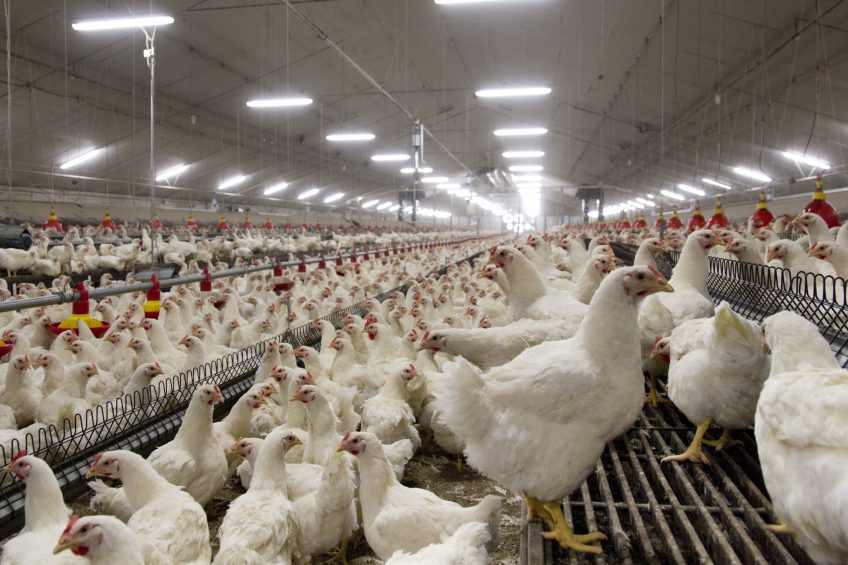Pirbright Institute – new viral vectored poultry vaccine

Researchers at The Pirbright Institute Have developed a recombinant vaccine which is effective against both Marek’s disease (MD) and infectious bursal disease (IBD) using a new viral vector.
Both diseases are highly infectious and associated with high mortality rates, making them a constant threat to the productivity of the worldwide poultry industry over the past few decades.
Many poultry vaccines currently use a modified herpesvirus of turkeys (HVT) to induce a protector against a number of poultry diseases including MD and IBD. Although these vaccines are effective when used alone, they often fail to activate sufficient immune responses when combined with other HVT vaccines for protection against multiple diseases.
The new vaccine, developed by Pirbright’s Professor Venu Nair and his team, uses the licensed MD vaccine strain called SB-1, which has a long history of working as a combined vaccine with HVT against MD. By genetically modifying the SB-1 vaccine strain, the team was able to insert protective genes from the infectious bursal disease virus and confirm the resulting virus could provide immunity against both diseases.
Their research, published in npj Vaccines, demonstrated that the recombinant SB-1 vaccine was able to produce immunity against IBDV infection at the same level as the commercial recombinant HVT vectored vaccines. With further advantage of complementing HVT vectored vaccines, the new SB-1 vector offers great potential for developing commercial vaccines capable of giving simultaneous protection against multiple avian diseases.
Professor Venu Nair, head of the Viral Oncogenesis group, said: “This development allow us to engineer vaccines that target multiple diseases which complement existing commercial vaccines. The technique also offers scope for us to include other virus genes such as from avian influenza and Newcastle Disease in the SB-1 vaccine, enabling us to protect against even more diseases in a single dose.”
The work was supported by funding from Defra and the Biotechnology and Biological Sciences Research council.












